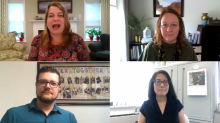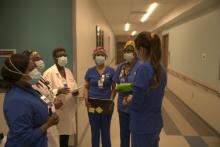Story by Janesta Walker / Originally published in Chesapeake Currents
Discussing what is happening with America’s schools has been the hot topic across the nation all summer. People have been waiting for the Coronavirus Task Force, local governors, and regional Boards of Education to make decisions and give guidance regarding the safe reopening of our nation’s schools. On an almost weekly and sometimes daily basis, guidance has changed based on new statistics and resurgence of the coronavirus in different regions. All the while, educators have been chasing a moving target.






 Editorial by Dottie Jones
Editorial by Dottie Jones